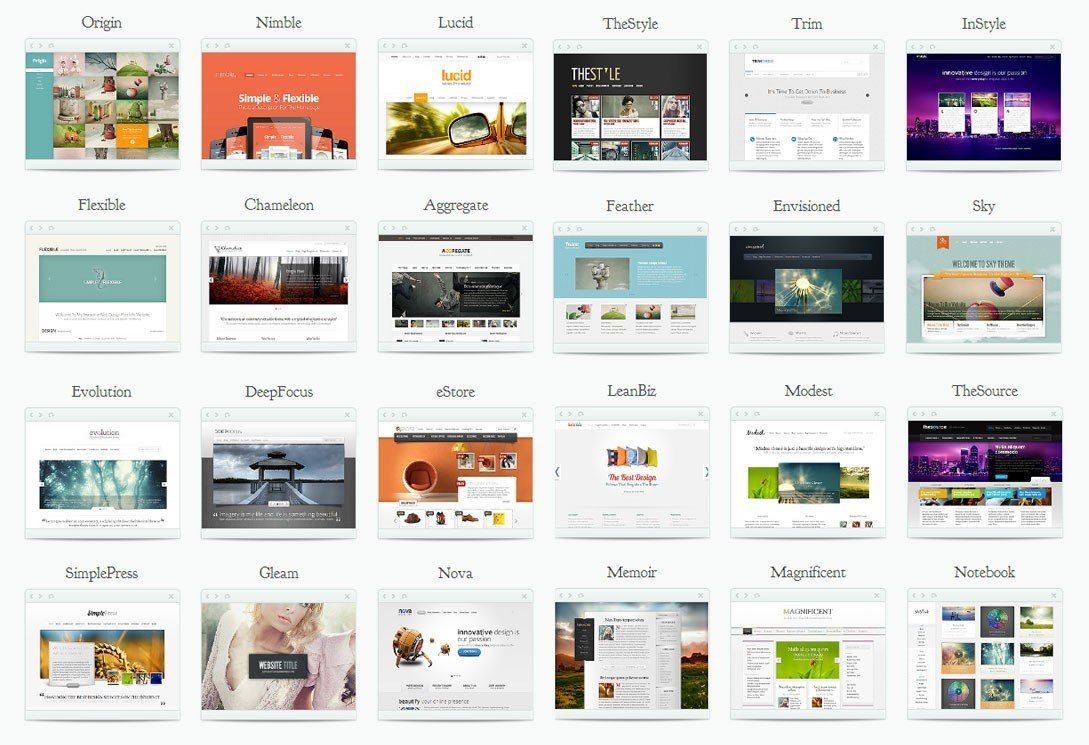If you’re in the process of creating a website, you’ve probably come across the two most popular website building platforms: HubSpot and WordPress. Both platforms offer unique features and functionalities that cater to different types of users. However, when it comes to deciding which platform to use, there is a clear winner.
In this article, we will compare HubSpot and WordPress, highlighting the pros and cons of each platform. We’ll delve into their features, ease of use, pricing, content management systems (CMS), marketing software, and website building capabilities. By the end of this article, you’ll have a better understanding of which platform is better suited for your needs.
So, whether you’re an entrepreneur, a blogger, or a small business owner, keep reading to find out why WordPress will always trump HubSpot as the better website building platform.
Understanding HubSpot and WordPress
HubSpot and WordPress are two of the most popular content management systems (CMS) available on the market. Both platforms offer unique features and functionalities catering to different needs and preferences. In this section, we will provide an overview and comparison of the core elements of HubSpot and WordPress.
HubSpot
HubSpot is primarily known as a marketing software, offering an all-in-one platform for businesses to manage their sales, marketing, and customer service. Its website builder and CMS tools are a recent addition to their suite of offerings.
One of the key features of HubSpot’s CMS is its content staging area, where you can preview and optimize content before publishing. Additionally, the platform provides built-in SEO and analytics tools, making it easier to track your website’s performance.
However, HubSpot’s website builder is not as flexible as WordPress, and customization options are limited compared to other platforms. The pricing for HubSpot can also be expensive, especially for small businesses or individuals.
WordPress
WordPress is a free, open-source CMS that powers over 40% of all websites on the internet. It is known for its flexibility, ease of use, and vast range of plugins and themes.
The platform has a robust community of developers and users, making it easy to find support and resources online. Additionally, WordPress has a user-friendly interface, making it accessible for beginners and advanced users alike.
WordPress offers a wide range of website building capabilities and customization options, allowing users to create unique and dynamic websites. The platform’s SEO capabilities are also highly rated, with plugins such as Yoast SEO available to optimize content and improve search engine rankings.
However, WordPress can be less user-friendly for those without technical skills, and the sheer number of plugins and themes available can sometimes be overwhelming and lead to compatibility issues. Additionally, the responsibility of ensuring website security falls on the user, unless you opt for managed hosting services.
| HubSpot | WordPress | |
|---|---|---|
| Primary Function | Marketing software | Content management system |
| Flexibility & Customization | Less flexible | Highly flexible with many customization options |
| SEO Capabilities | Built-in SEO | Highly rated, with plugins available for optimization |
| Pricing | Expensive | Free, with options for paid themes and plugins |
| Security | Managed by HubSpot | Responsibility of user |
Pricing: HubSpot vs WordPress
When it comes to pricing, WordPress offers a more affordable option than HubSpot. While WordPress is free to use, the cost of a site on HubSpot can range from $200 to $2400 per month, depending on the plan you choose.
HubSpot’s pricing plans are designed to offer a range of features and capabilities to businesses of different sizes and stages of growth. However, they can be quite costly, especially for small businesses and startups.
On the other hand, WordPress offers a variety of pricing options, depending on your needs. Basic WordPress sites can be created for free, but you will need to pay for hosting and other add-ons to get more advanced features.
Overall, if you are looking to save money and still create a professional-looking website, WordPress is the better choice. However, if you are a larger business looking for advanced marketing features and customer relationship management, HubSpot’s plans might be worth the price.
Ease of Use: HubSpot vs WordPress
When it comes to ease of use, WordPress is a clear winner in the HubSpot vs WordPress comparison. WordPress is a user-friendly platform that can be easily set up, customized and maintained even by those who are not tech-savvy.
WordPress offers a simple interface that allows you to create, edit and publish content without any hassle. It also provides a wide range of free and premium themes that can be customized according to your preferences. With WordPress, you have complete freedom to build your website the way you want it.
On the other hand, HubSpot may not be as easy to use as WordPress, especially for beginners. It requires some level of technical knowledge, and the interface can be a bit overwhelming. However, HubSpot offers a drag-and-drop page editor that makes it easier to design pages. It also has a visual content editor that simplifies the process of creating and managing content.
Overall, WordPress scores higher in terms of user-friendliness. It provides a more intuitive and straightforward experience, making it accessible to individuals and businesses of all skill levels.
Website Building Capabilities: HubSpot vs WordPress
When it comes to website building capabilities, both HubSpot and WordPress offer a range of features and customization options. However, there are some key differences between the two platforms that are worth considering.
WordPress is a popular website builder known for its flexibility and vast range of design options. With thousands of templates and themes available, WordPress allows you to build a website tailored to your specific needs and preferences. Additionally, WordPress offers a variety of plugins that can enhance your website’s functionality and performance.
On the other hand, HubSpot’s website builder is integrated with their all-in-one marketing software, making it a convenient option for businesses looking for an all-in-one solution. While HubSpot’s design options are more limited compared to WordPress, their templates are professionally designed and optimized for conversion.
Another difference between the two platforms is the level of technical expertise required to build a website. While WordPress may be more challenging to set up initially, it offers greater control and flexibility for more advanced users. HubSpot, on the other hand, is geared towards users who may not have as much technical expertise but still want an all-in-one solution for their website and marketing needs.
Overall, both platforms offer unique website building capabilities. If you’re looking for greater flexibility and customization options, WordPress may be the better choice. If you’re looking for convenience and an all-in-one solution, HubSpot may be the right fit for your business.
Content Management: HubSpot vs WordPress
When it comes to content management, both HubSpot and WordPress offer powerful CMS capabilities that can help you create and publish content quickly and easily. However, there are some key differences between the two platforms that are worth exploring.
WordPress is well known for its robust content management features, which allow you to create and manage a wide variety of content types, including blog posts, articles, pages, and more. The WordPress CMS is highly customizable, so you can easily add and remove features as needed to suit your needs. Additionally, WordPress is open source software, which means that there are a huge number of plugins and extensions available to enhance its functionality.
HubSpot, on the other hand, is primarily a marketing software platform that includes a content management system as one of its many features. While the CMS in HubSpot is powerful and easy to use, it is more limited in terms of customization options. HubSpot is designed to be an all-in-one solution for businesses that want to manage their marketing campaigns and website content in one place, so it may not be the best choice for those who need a more flexible CMS.
Marketing Features: HubSpot vs WordPress
When it comes to marketing software, both HubSpot and WordPress offer a range of features to help you optimize your digital presence. However, there are some key differences to consider when comparing the two platforms.
Lead Generation: HubSpot offers a suite of lead generation tools, including landing pages, lead forms, and pop-ups, which are fully integrated with their CRM. WordPress, on the other hand, relies on third-party plugins to provide similar lead generation capabilities. While there are many effective plugins available, the integration may not be as seamless as it is with HubSpot.
Email Marketing: HubSpot provides an all-in-one email marketing solution, allowing you to create and send personalized emails, segment your audience, and track engagement. WordPress offers email marketing plugins, such as Mailchimp or Constant Contact, but they are not as robust as HubSpot’s built-in functionality.
Analytics: Both platforms offer analytics tools to help you track your website’s performance and monitor user behavior. However, HubSpot’s analytics are fully integrated with their marketing and CRM tools, providing a more comprehensive view of your entire digital marketing strategy.
Social Media: HubSpot allows you to manage all of your social media accounts in one place, schedule posts, and analyze engagement. While WordPress does offer social media plugins, such as Jetpack or Social Warfare, they do not have the same level of integration and functionality as HubSpot.
In conclusion, while WordPress does offer some powerful marketing tools through third-party plugins, HubSpot’s all-in-one approach provides a more seamless and comprehensive solution for businesses looking to optimize their marketing efforts.
Third-Party Integrations: HubSpot vs WordPress
One major consideration when choosing a website platform is the availability and compatibility of third-party integrations. By connecting your website with other tools and services, you can expand its functionality and streamline your workflow. Here, we will compare the third-party integration ecosystems of HubSpot and WordPress.
| HubSpot | WordPress |
|---|---|
| HubSpot offers a wide range of integrations, including CRM, marketing, and sales tools. Some popular options include Salesforce, Mailchimp, and Zapier. The platform also has its own marketplace of apps and integrations. | WordPress has a vast library of plugins that can be used to extend its functionality. These include options for SEO, social media, e-commerce, and much more. Many popular third-party tools and services also offer WordPress integrations. |
| However, HubSpot’s integrations tend to be more tightly integrated and may offer more seamless workflows. Additionally, the platform provides centralized reporting and analytics for all integrated tools. | On the other hand, WordPress’ vast plugin library means that there is likely an option for any specific integration you need. However, the quality and compatibility of these plugins can vary widely, making careful research and vetting necessary. |
Overall, both HubSpot and WordPress offer a variety of third-party integrations to enhance your website’s functionality. HubSpot’s integrations may be more tightly integrated, but WordPress’ plugin library is vast and offers a wide range of options.
Support and Community: HubSpot vs WordPress
When you’re deciding between HubSpot and WordPress, it’s essential to consider the level and type of support available for each platform. Both platforms offer support resources, but there are some important differences to be aware of.
HubSpot’s support is extensive, offering a range of options to help users with different levels of technical expertise. Their knowledge base provides detailed documentation with tutorials, FAQs, and guides, while their community forum is an active space for users to ask questions and share insights.
Additionally, HubSpot provides phone and email support for paying customers, with dedicated account managers available to assist with more complex issues. However, the downside is that their support is limited to paying customers only.
On the other hand, WordPress offers a more decentralized approach to support, with many resources available online. There is a wealth of documentation, tutorials, and resources created by the community on WordPress.org. The platform is entirely free to use, which means support is not tied to specific pricing tiers.
That being said, the decentralized nature of WordPress support means that the quality and reliability of support are not always guaranteed. While there are paid support options from third-party developers and vendors, WordPress users may not have access to the same level of in-house support and account management that HubSpot offers.
Security: HubSpot vs WordPress
Ensuring the security of your website is crucial, which is why comparing the security measures offered by HubSpot and WordPress is essential. Both platforms have their own set of security tools and features, and it’s important to understand which one provides better protection for your website.
WordPress, being an open-source platform, provides a community of security experts who consistently work on developing security features and updates. Additionally, WordPress offers a variety of plugins specifically designed to enhance website security, such as Wordfence and iThemes Security. WordPress also provides regular security updates to address new security vulnerabilities.
In contrast, HubSpot offers a more centralized approach to security, providing its own security team to handle any potential security threats. HubSpot’s security team closely monitors and manages the security of their platform, ensuring the highest level of security for their users. HubSpot’s security measures include encryption, firewalls, spam filtering, and threat detection.
Both platforms offer significant security measures, but it’s important to understand the differences between the two. WordPress may require a little more effort in implementing and maintaining security measures, but its open-source community and access to a wide range of security plugins make it an attractive option for those prioritizing security. HubSpot, on the other hand, provides a more seamless and centralized approach to security, which may appeal to those who prefer a hands-off approach.
SEO Friendliness: HubSpot vs WordPress
When it comes to optimizing your website for search engines, both HubSpot and WordPress have built-in features that can help improve your website’s visibility. However, WordPress stands out as the preferred platform for SEO.
WordPress allows for greater customization and control over your website’s SEO, with a vast library of plugins specifically designed for this purpose. These plugins enable you to optimize your content for keywords, create meta tags, and improve website speed and performance – all essential components of SEO.
On the other hand, HubSpot’s SEO tools are more limited, with fewer customization options and a less intuitive interface. While it does have basic features such as keyword research and optimization, it falls short in comparison to WordPress.
In summary, if SEO is a top priority for your website, WordPress is the better choice due to its greater flexibility and range of options for optimization.
Mobile Responsiveness: HubSpot vs WordPress
Mobile responsiveness is essential for any website in today’s digital landscape. With more and more people accessing the internet via their mobile devices, having a website that is optimized for mobile is crucial. When it comes to mobile responsiveness, how do HubSpot and WordPress compare?
Overall, both platforms offer mobile responsive website design. However, WordPress has the edge when it comes to customization and flexibility. WordPress offers a vast selection of mobile-responsive themes and plugins that allow users to optimize their website for mobile devices easily. Additionally, WordPress allows users to customize their website’s mobile design with ease using its intuitive interface and drag-and-drop functionality.
In contrast, HubSpot’s mobile responsiveness is more limited. While the platform does offer mobile-responsive website design, customization options are limited primarily to HubSpot’s pre-built templates. While the templates are well-designed and professional-looking, they lack the flexibility and customization options available with WordPress.
In summary, if mobile responsiveness and customization are important factors in your website design, WordPress is the clear winner between HubSpot and WordPress. With its vast selection of customizable themes and plugins, WordPress offers a more flexible and customizable approach to mobile website design.
Conclusion
After a thorough comparison of HubSpot and WordPress, it is clear that WordPress is the superior choice for most users. While HubSpot offers some useful marketing features and a robust CMS, WordPress excels in areas such as pricing, ease of use, website building capabilities, and third-party integrations.
Not only is WordPress more affordable for users on a budget, but it also offers a more intuitive interface for beginners and more flexibility for advanced users. Additionally, the vast array of plugins and themes available make it a powerful tool for website building and customization.
While HubSpot may be a good choice for businesses focused solely on inbound marketing, its lack of flexibility and higher pricing make it less appealing to many users. WordPress, on the other hand, is perfect for businesses of all sizes looking for a CMS and website builder with a wide range of capabilities.
Overall, when compared side by side, WordPress emerges as the clear winner for most users looking for a versatile and user-friendly website builder and CMS.

![The 10 Most Accurate Website Traffic Estimators [2025 Update] - Accurate Website Traffic Estimators The 10 Most Accurate Website Traffic Estimators [2025 Update] - Accurate Website Traffic Estimators](https://www.toptut.com/wp-content/uploads/2024/01/The-10-Most-Accurate-Website-Traffic-Estimators-2024-Update.jpg)






Comments 8
Comments are closed.